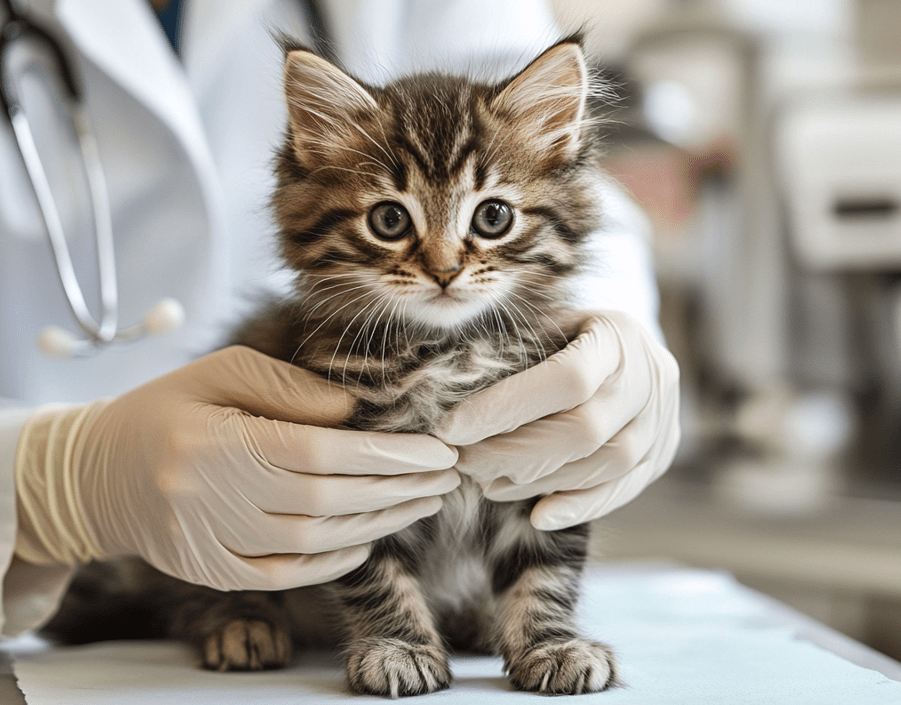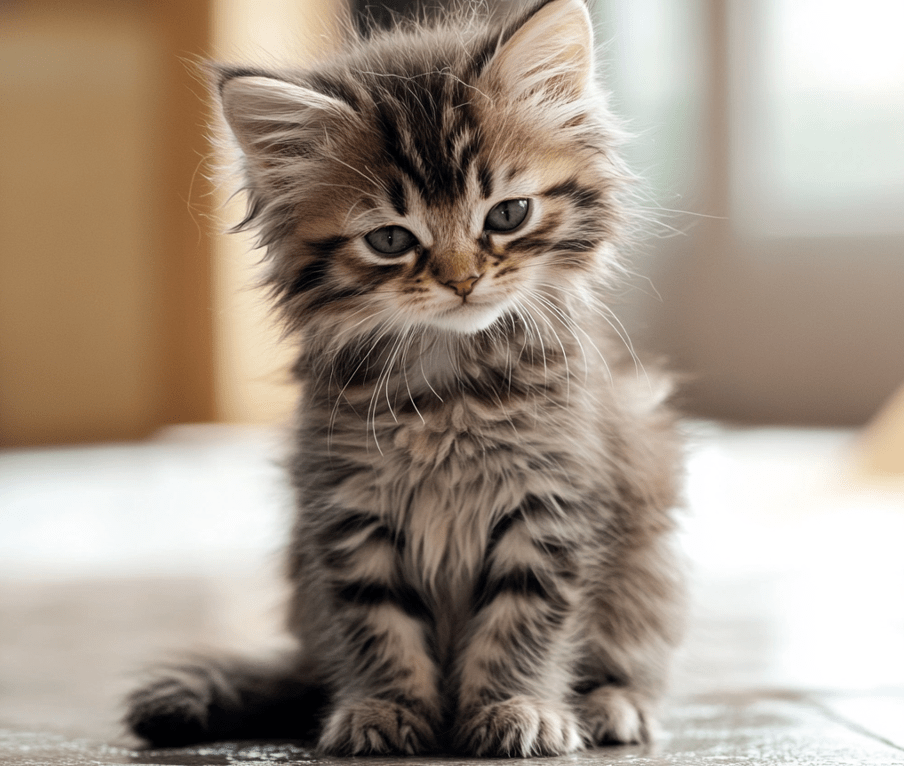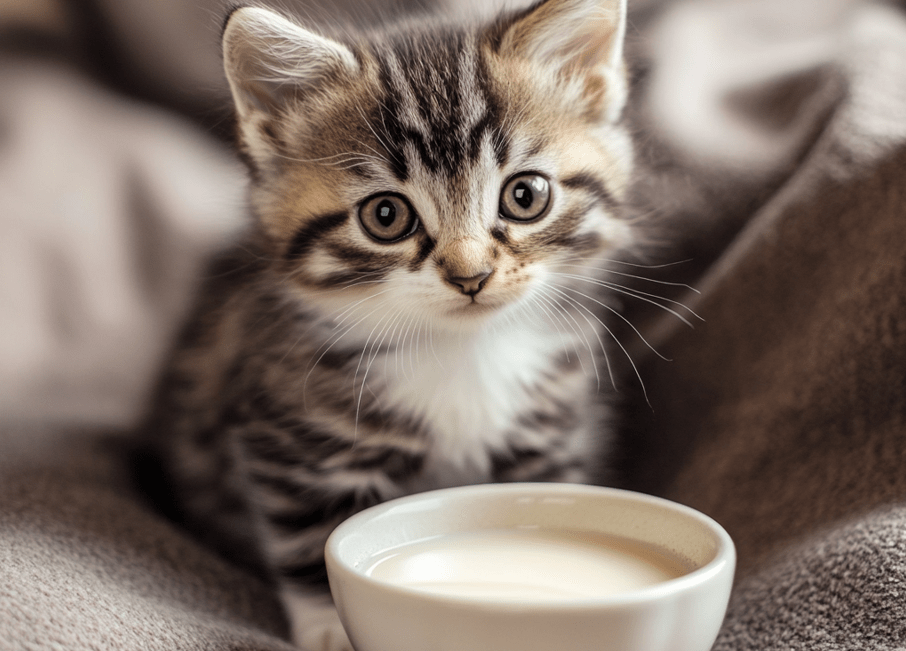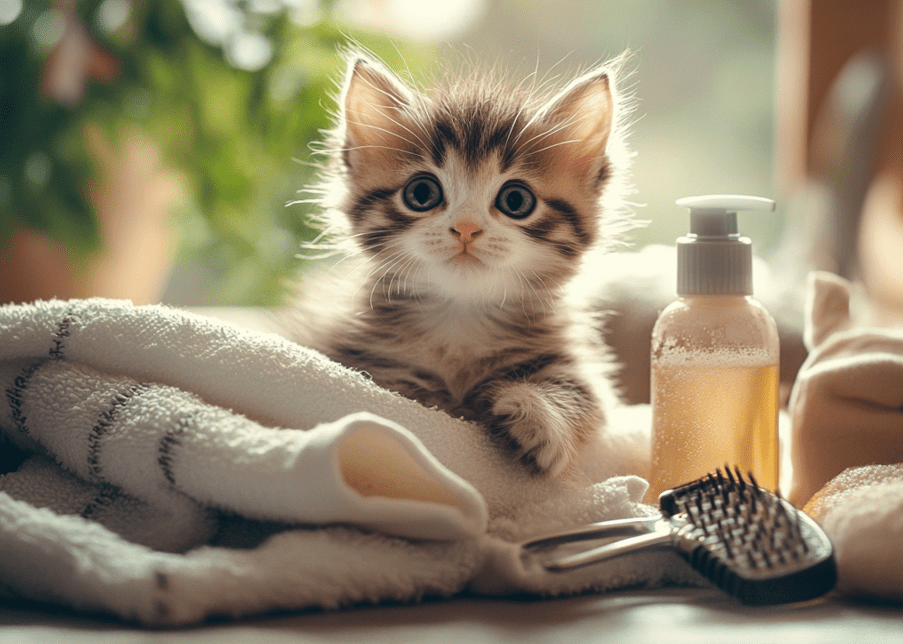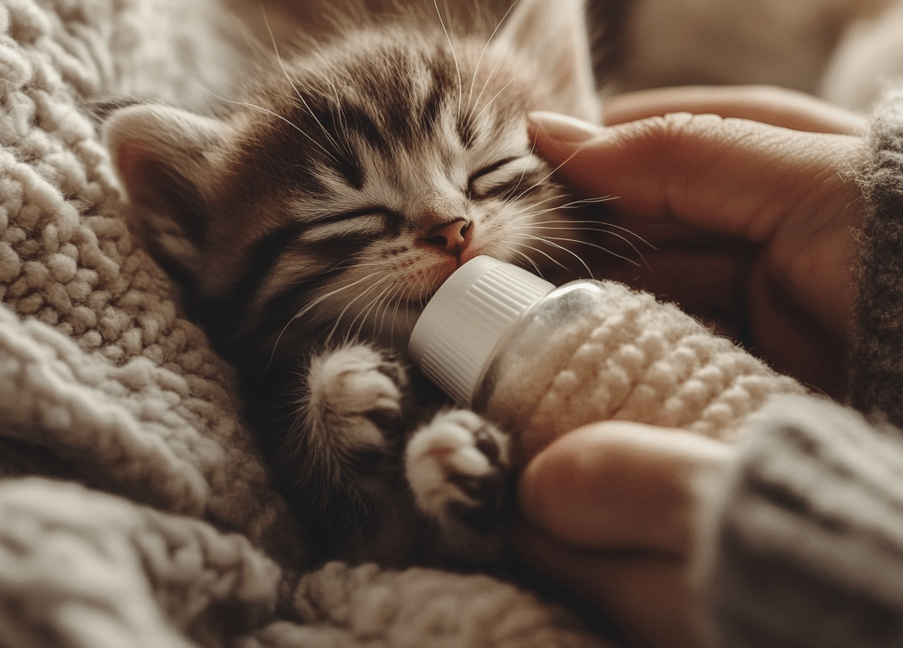
Taking care of a baby cat is very rewarding, but you will need an immense amount of time and knowledge as well as love. During the first weeks of life, newborn kittens are entirely dependent on their mother or you for everything from food to help in regulating temperature; even their elimination needs your assistance. This detailed guide to raising a newborn kitten from feeding, environmental hygiene, maintenance of warmth, socialization and health-monitoring is designed to serve as adequate information for a week-by-week blueprint as preventive care required during this vital period.
You might be a first-time cat owner or already have several cats, but if you’re caring for an underage kitten (whose mother is not present), then here are some more tips to cold care your newborn kittens. And throughout the first four weeks and beyond, with your commitment and the right information and regular monitoring by a vet, you can help turn that newborn kitten into a healthy, bouncy young cat.
What to Consider for Newborn Kitten Health Care
There are many angles that must be covered when providing complete care for newborn kittens, with all of the health and wellness components being respected. Following are the main points to consider:
Feeding
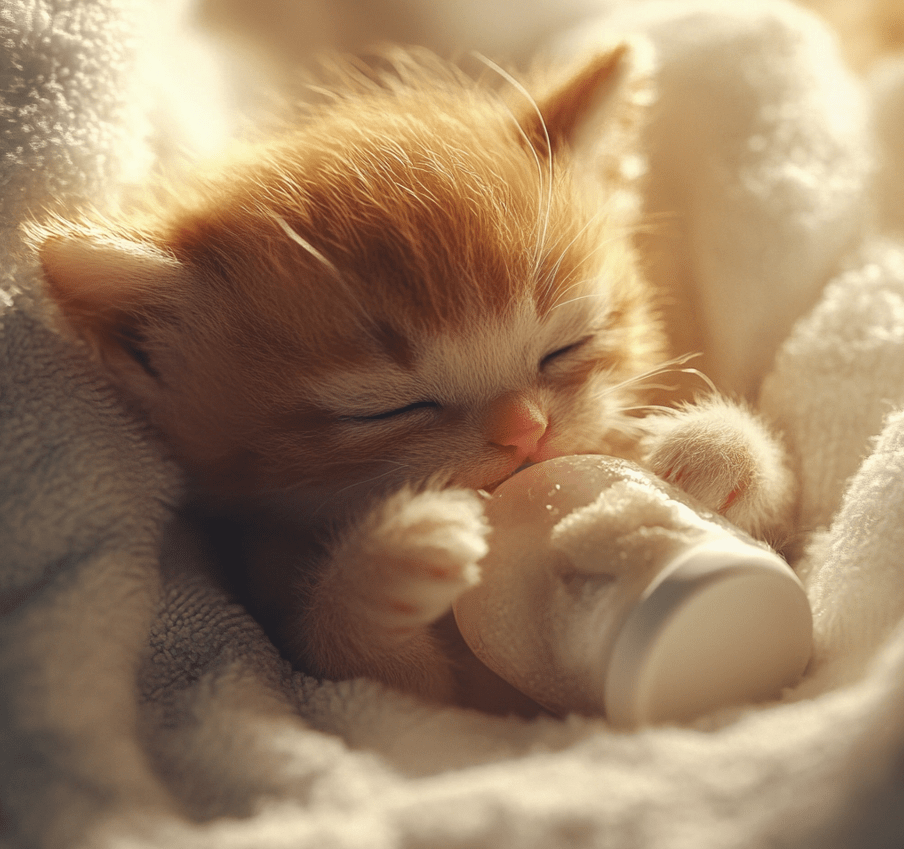
Neonatal kittens need to be bottle fed with a kitten milk replacement formula every two to three hours. Kittens sleep about 90% of the time, and spend the other 10% eating. This is important since these little kittens could never metabolize cow’s milk, so they are not seeing that as a trade. Feed through a kitten feeding bottle but with a small nipple resembling the mother’s teat. Kittens Daily formula feeding: 8 milliliters per ounce of body weight. Another important thing is observing the weight of your kitten and then adjusting feed amounts.
Temperature Control
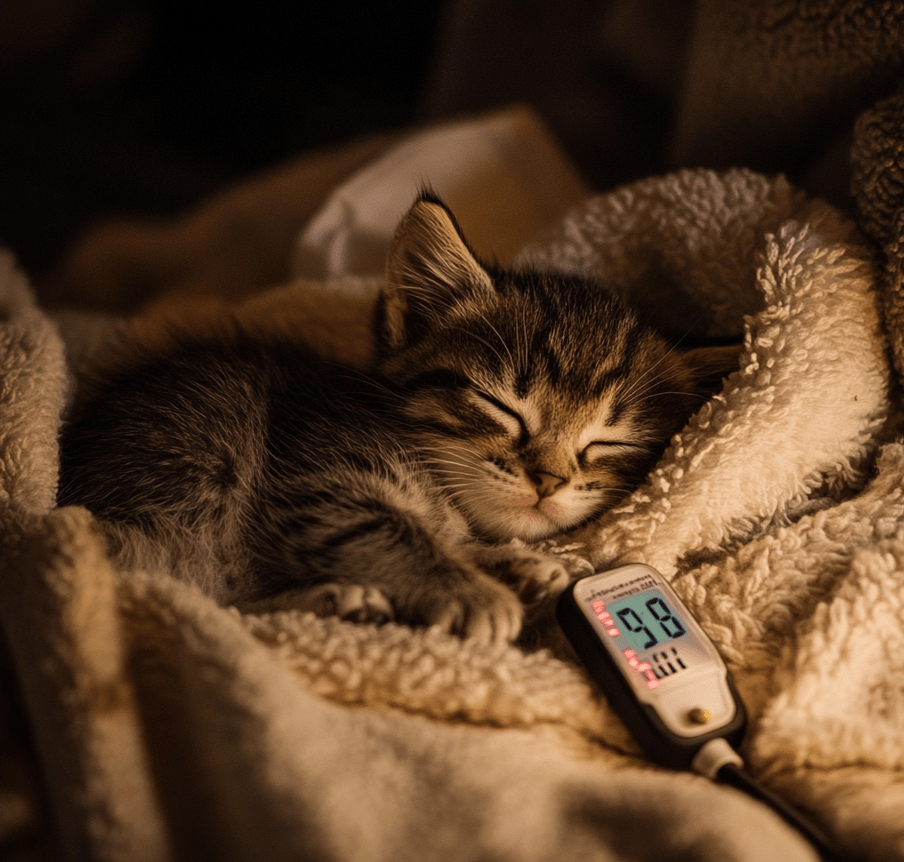
Within the first three to four weeks of life, newborn kittens are not able to regulate their body temperature and so proper environmental temperature is vital. The environment will need to be at around 85-90 degrees Fahrenheit for the first week, and then decrease over time to approximately 80 degrees by week four. You can use a heating pad or hot water bottle in a towel as the heat source if you provide them as well with a cooler zone where they also get to hide from the heat.
Hygiene and Elimination
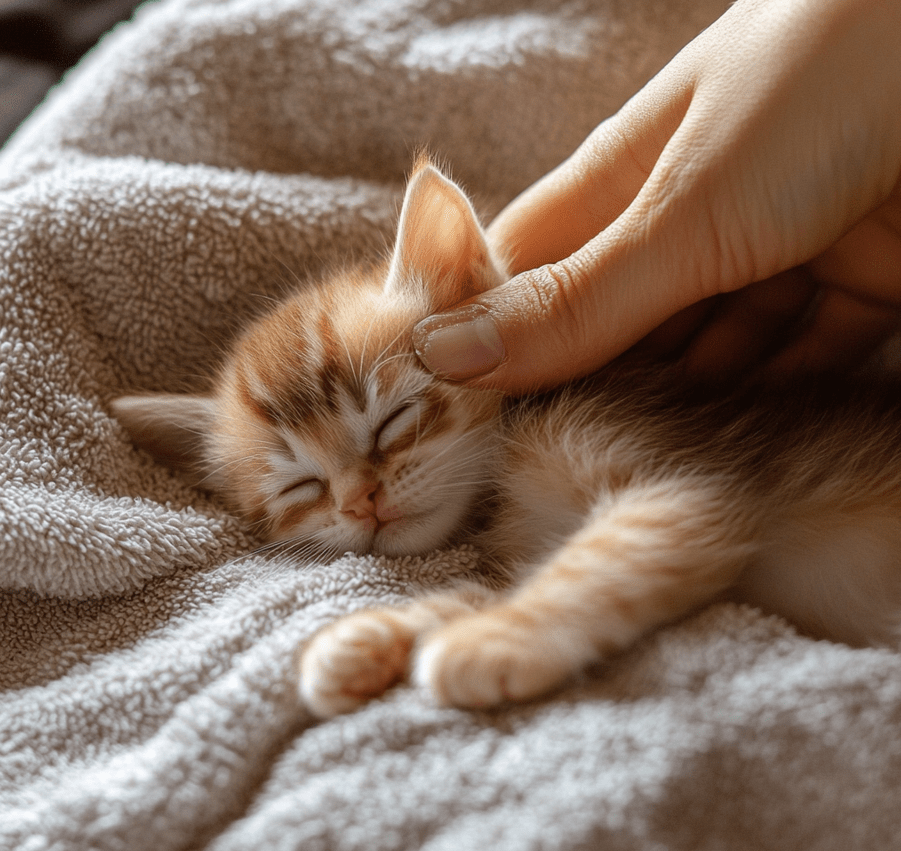
Kittens less than 3 weeks old have to be assisted with urination and defecation. This term is called ‘stimulation.’ This usually consists of gently wiping the lower belly and genital area with a warm, damp cloth or cotton ball after every feeding. Make sure you keep the kittens clean and dry to avoid skin issues.
Socialization
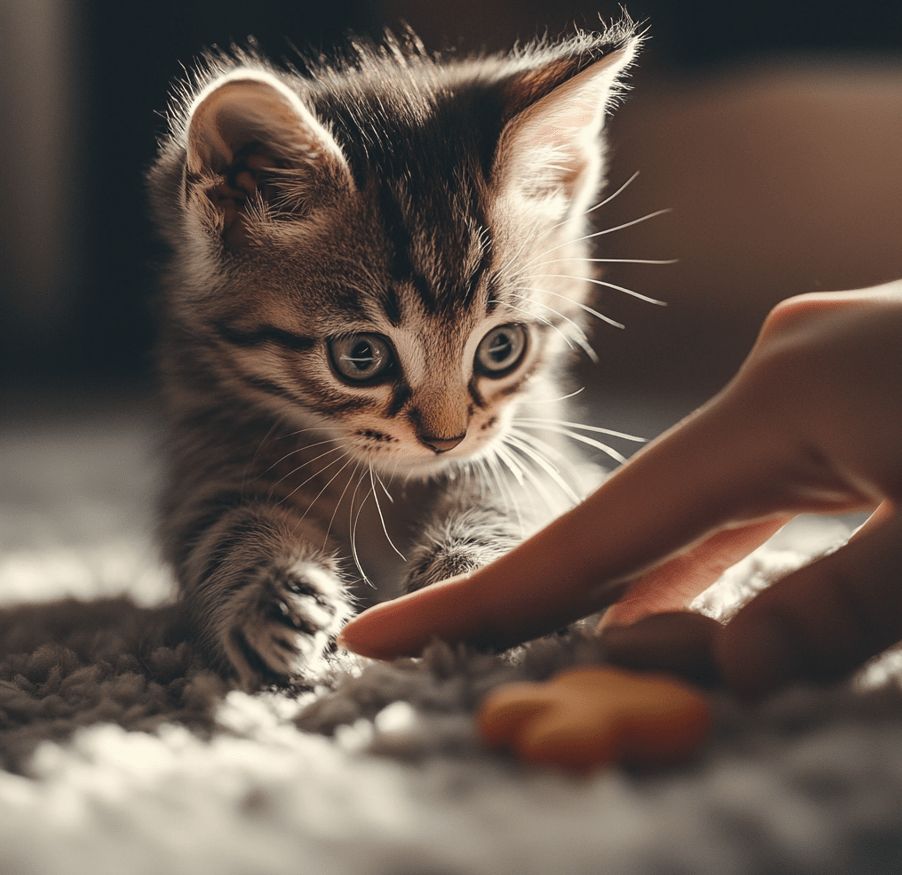
When a newborn kitten opens its eyes it tries to understand its surroundings. Frequent, soft handling leads them to become used to human touch which is an important element of their socialization. Make them accustomed to different harmless stimulations like different sounds, textures and gentle handling by various other people to condition them for all the environments they will come across when they grow up. But balance it out with their need to rest and sleep as well, which is important for them to grow.
Health Checks
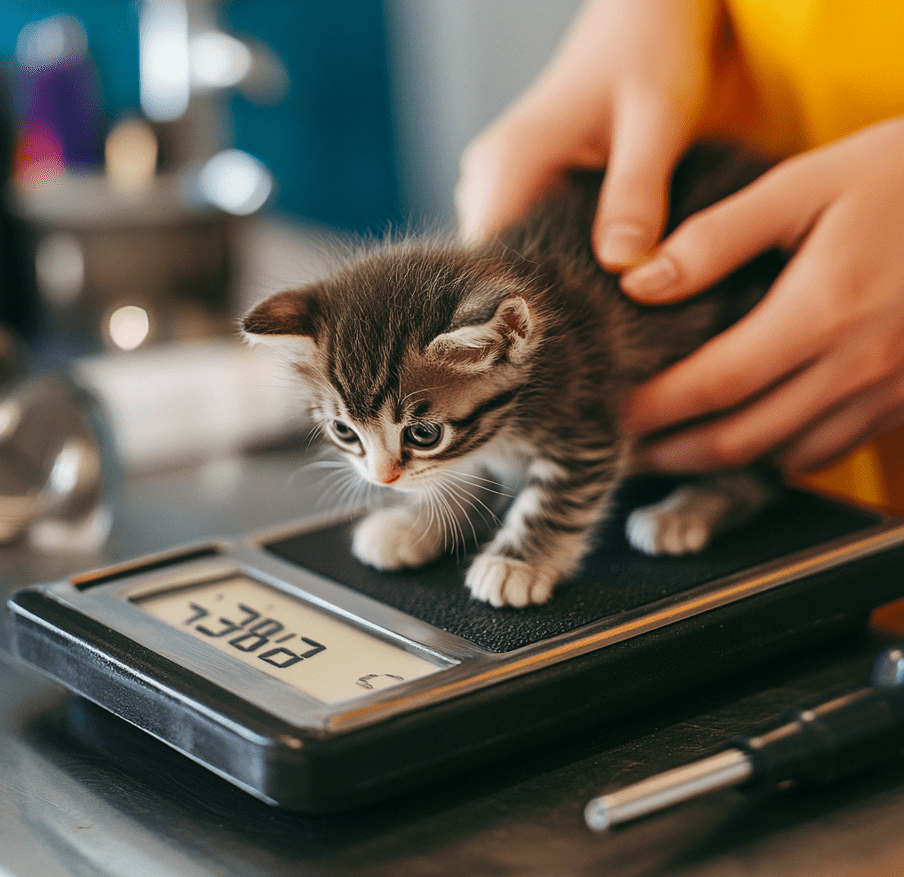
Routine health checks are a form of preventive care. You can begin monitoring the progress of the kitten continuously and catch any potential diseases at an initial stage. Get in the habit of weighing them each day, a consistent weight gain is a positive reflection on their health status. Check their body out for bloating, are they hurt or uncomfortable? Observe their eating, sleeping, and elimination habits. Get veterinary help immediately if you notice any unusual occurrences or signs of illness such as sluggishness, constant whining, difficulty breathing, or diarrhea. Vets will be able to perform emergency care.
Vaccinations and Deworming
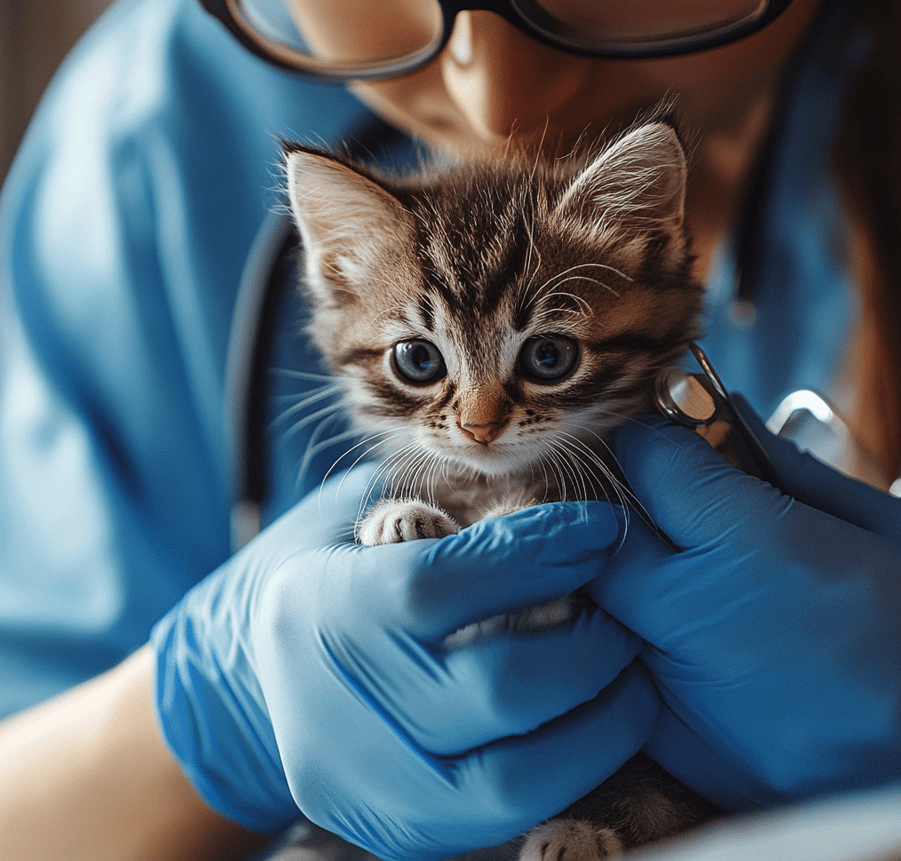
Like routine preventive care in human health, vaccinations and deworming are essential parts of a kitten’s health care program. The first round of vaccinations should happen roughly around 6 to 8 weeks of age and subsequent booster shots per your vet. Kittens can be dewormed starting around two to three weeks of age, because they can get worms from their mom. But get the correct schedule and have vaccines, dewormers or treatments done to prevent heartworm because it is always best for your cat’s health.
Feeding a Newborn Kitten
Feeding a newborn feline requires a special formula and careful methods to ensure the kitten get all the nutrients they need in addition to not forming any complications. Step-by-step Guide: Head here for a detailed guide on the same.
Preparation: Start with a kitten milk replacement that is actually created for the nutritional needs of newborn kittens (to increase healthy little kitties.). Under no circumstances should you give them cow’s milk or other types of milk that kittens can’t digest well nor provide the necessary vitamins. You can feed your kitten using a kitten bottle and small nipple.
Prepare the mixture: Mix up the kitten milk replacement according to what is written on the pack. Make sure it has reached the perfect temperature before offering this to your kitty. It needs to be nice and warm, not hot. To check, pour a few drops on your wrist — it should be comfortably warm.
Position the Kitten: The kitten should be held in an upright (or belly down) position similar to how they would lay while nursing with their mother. Never feed kittens on their backs: this can cause them to aspirate (get the formula into their lungs instead of stomach).
Feeding: Place the bottle nipple in the mouth of the kitten to allow suckling. A light squeeze on the bottle can cause milk to flow, while applying too much pressure could cause the infant to choke or aspirate. It is necessary for the kitten to drink at his rhythm, never force him to take it in an exaggerated way.
Watching their Intake: Keep an eye on how much they eat at each meal Kittens should be fed approximately 8 milliliters of formula per ounce (in the form of many small meals) per day on average. Make sure all the kittens are eating when you feed them each time.
Burp the Kitten: Gently burp the kitten after every feeding by holding him on your shoulder and patting his back. This either relaxes the muscle or uses it to help push air out of your stomach that may have been ingested during the meal.
Clean‐up: After eating, use a warm, damp cloth to clean the kitten’s face. The kitten will lick these areas so you are essentially keeping the kitten relatively clean, and mimic what mom would be doing.
Storing unused formula: Keep any liquid from the can in the refrigerator and throw it out after one hour engaging it. At the next feeding, the formula should be warmed again.
Please remember that the chore of feeding a new-born kitten is significant and it must be done correctly for more information or if the kitten is not eating enough food, consult your veterinarian or someone who has experience with caring for a cat. Remember to always be gentle with the kittens and follow their lead once they are done eating and baby suckling.
Feeding Frequency
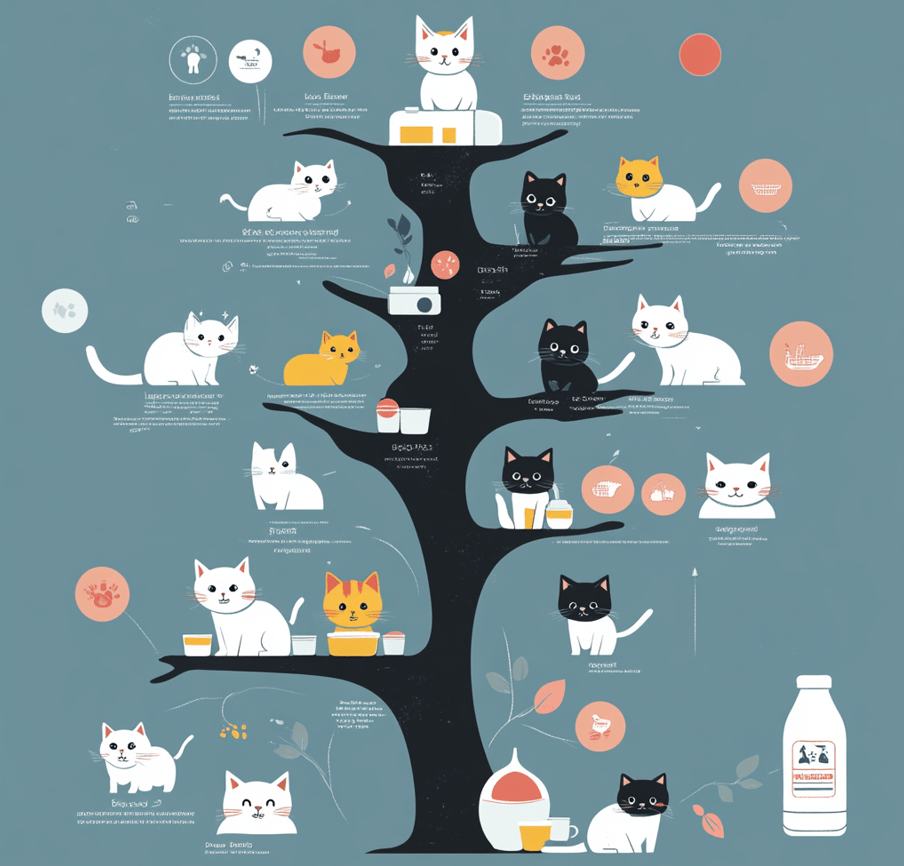
How much to feed a kitten depends on the age of the kitten. Kittens will require fewer feedings as they grow. Here is a broad guideline:
0 – 1 week:
Neonatal kittens must be nourished every 2-3 hours, resulting in a total of around 12 feedings per day. This can be a great opportunity to bond with the little one and hold a newborn kitten in your arms while he does this, not only making him comfortable.
1-2 weeks:
At this stage, kittens will still need to be fed every 2-3 hours but the feeding frequency may decrease to about 9-10 times per day. Keep them warm — kittens cannot regulate body temperature yet so after they are clean and fed, make sure the area is well heated for them.
3 to 4 weeks:
You should give kittens in this category food every four hours, which translates to approximately six mealtimes per day. This is the time to start transitioning them onto kitten food as well as their kitten formula.
4 to 5 weeks:
Remains before socialization and if it sticks to its mother, it should be less than 6 times a day. Start to transition them from the formula to wet kitten food
6 to 8 weeks:
Feeding kittens tuna twice a day is acceptable during this time period. They must be eating a kitten diet and off mother’s milk entirely.
How to Care for a Kitten
Cats need to keep them clean and they do it very well when they are kittens. Tips for Hygiene of a Kitten
1.Frequent Grooming:
Cats are naturally constantly cleaning themselves, so shampoo is not a necessity. But, it is also a good idea to brush out any loose air and matting with long haired breeds. Brushing your pet will also spread out the natural oils on the kitten’s skin which makes its coat shiny and healthy.
2.Bathing:
Cats generally do not need frequent bathing. Some cats may need to be bathed e.g. messy kittens, some dermatological conditions requiring special shampoos etc. Baths should be as short and infrequent as possible, and with the use of a cat-specific shampoo.
3.Oral Hygiene:
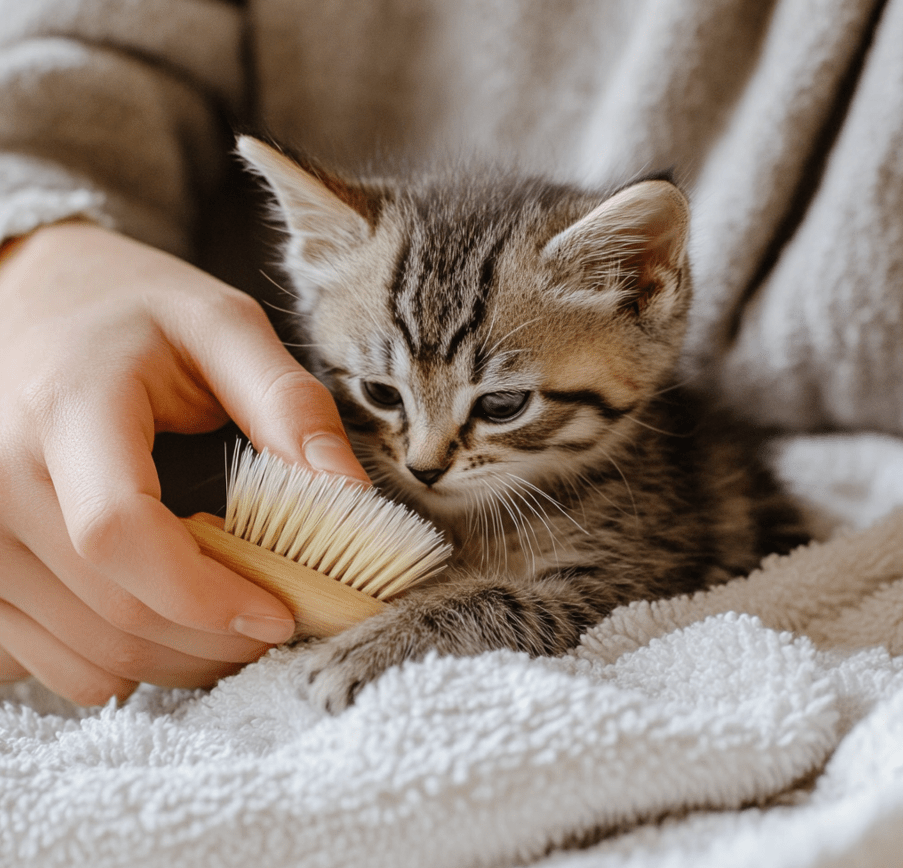
Begin an oral care regimen early. Cleaning your kitten’s teeth with special cat toothpaste can stop dental disease. Your vet will also help monitor your kitten’s oral health during regular check-ups.
4.Clean Eyes and Ears:
Clean the eyes and ears of your kittens regularly. You can wipe off any purulent discharge with a soft, damp cloth. Never insert anything into the kitten’s ear canal cosmetic products and practices must never come before safety!
5.Litter Box Maintenance:
A fresh litter box is important for caring for your kitten and helps they stay motivated to consistently use it. That is, the litter should be cleaned regularly and the litter should be changed at regular intervals. The box itself should also be cleaned with some mild soap and water.
6.Flea and Tick Prevention:
Keep fleas and ticks at bay with a vet-recommended flea and tick prevention. Inspect your kitten, particularly after he has played outside for fleas or ticks.
7.Regular checkups and nail clipping:
This can save them from injuries and also prevent damages to your furniture. When you trim your kitten’s nails, only cut the very outer part of the nail and do not touch their pink part that is sensitive
8.Regular vet check-ups:
Regular veterinary check-ups are very important because this will assure the well-being of your kitten. Consult your vet as all kittens are different and timings will depend on your breed plus age and health status.
Good hygiene practices form the first line of defense for your kitten’s health, comfort and welfare by ensuring that diseases are kept at bay and any emerging challenges are identified early. These are habits that should be instilled when the cat is a kitten and they form good behaviors for an adult animal that goes through its life as love.

